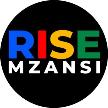In the current epoch, there is no room for political by-standers. As citizens, we urgently need to reconfigure politics in South Africa. We dare remind South Africans that political activism is not a liberation movement exclusive, but a generational necessity summoned by the conditions of that time. The state of the republic calls for the current generation to take its rightful place in the pages of history.
The genesis of RISE Mzansi in 2023 was born of historical necessity and political urgency to reconfigure the zeitgeist. This reconfiguration imperative is a prime reason the upcoming 2024 South African elections are compared to the 1994 national election, which ushered in a new political administration, new representative leadership, and refreshing dispensation. Hence, every one of the 27 million citizens on the voters’ roll must vote on 29 May and be conscientiously mindful of the epochal significance of their decision.
As we mark thirty years into the democratic dispensation, the country's depressing socio-economic conditions require structural and institutional interventions by a generation of men and women willing to do things differently. These are men and women who represent leaders in their own right, forged on principles of selfless service and priding themselves on building a meritocratic public service.
They are men and women dedicated to transforming citizen apathy into passionate community engagement and individual despondency into citizen-centric hopefulness. Fortunately, RISE Mzansi has in its policy arsenal and leadership ammunition the necessary qualities to inspire the millions of South Africans who have been disappointed over the past decade by politics of indecision and policy schizophrenia. This reality is corroborated by the perennial declining figure of registered citizens going out to vote and actively participating in civic life.
One of the distinct features of this 2024 election is the number of parties that will be on the ballot paper. Two schools of thought seem to justify this reality. The first suggests that the voter is wiser and South Africans are taking advantage of the democratic process’s evolution.
The second cautions against this evolution by raising concerns that more citizens are finding themselves alienated from democracy. It says that structural socio-economic issues, rooted in inequality, have denied South Africans the experience of belonging and that we are witnessing people finding solace in alienated pockets of representation. Traditional parties which dominated the political space have become less appealing and have alienated millions of South Africans into the wilderness. The birth of RISE Mzansi is a response to this identity disjuncture.
As mentioned above, the reality affirms the latter school of thought that democracy and, more especially, project South Africa is at risk. It cites symptoms of a nation in an identity crisis, an indictment of those bestowed the responsibility to lead.
RISE Mzansi's formation did not occur spontaneously but was a ground-up mass project involving South Africans across the board. What culminated in the People’s Declaration and present Manifesto resulted from year-long consultative work across the country to allow South Africans to determine the organisation they want to respond to current challenges. This conscious bottom-up process was meant to counter the personality cult politics characterising some parties. One of the biggest criticisms towards RISE was that it was not formed by a “big political personality”.
We have since learned that personality cult politics is an undesirable culture that promotes and aids non-accountability, blurs lines between party and state, and fosters the cancer of institutionalised factionalism in the state. Undoubtedly, personality politics have undermined governance systems, turning public representatives into political celebrities. This culture has also created a deep-seated sense of entitlement to government resources, generated inter-generational antagonism and denied succession planning between the present and future leadership.
Another ill-informed criticism labelled against RISE Mzansi is that it is a liberal organisation. What this criticism obviously neglects is RISE Mzansi’s self-definition as embedded in the People’s Declaration and formed as a people-centric social democratic movement. It is a solutions-oriented organisation that calls upon every South African compelled by a sense of patriotism to restore South Africa. It is not an organisation strait-jacketed to ideological purism, but it focuses on pursuing a pragmatic programme.
The current National Leadership Collective (NLC) of RISE Mzansi is a representative of most of the demographics in South Africa. As we face further regression to racial laagers and tribal corners, RISE Mzansi is determined more than ever to demonstrate to South Africans that a united, prosperous South Africa benefiting all is still possible. A collective of young and old politicians and non-politicians have congregated with a common patriotic commitment to South Africa that has yet to be realised.
I have been a political activist for the better part of my life and have made a commitment to contributing to the betterment of my country. I remain committed to building a better future for my children and for their generation, where they can turn hope into reality.
I want to be part of the generation that will reconfigure the political culture of SA, usher new leaders who care, who are committed and will ensure that South Africans believe in public representatives again
Gugu Ndima is a national spokesperson of RISE Mzansi

